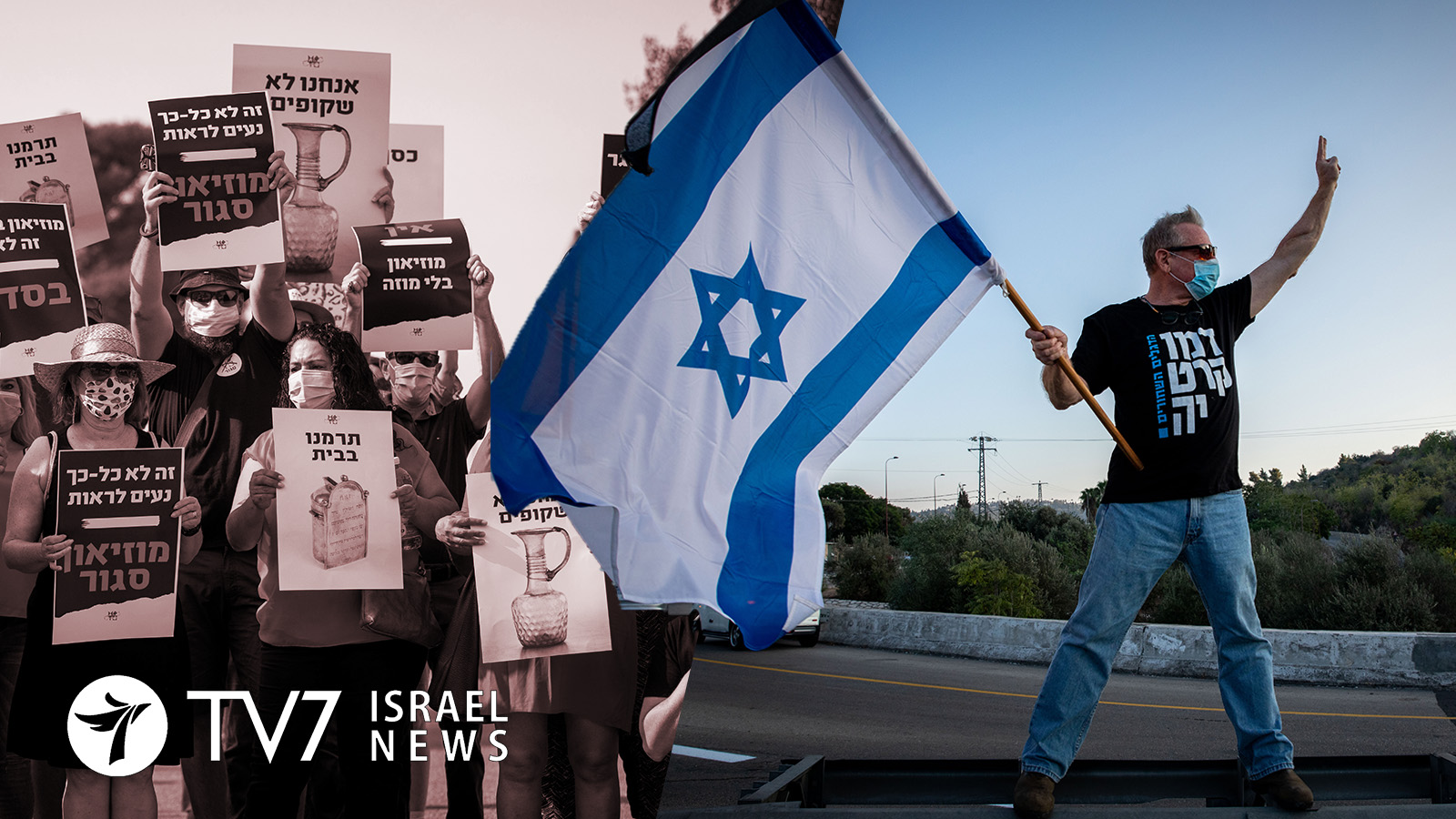The Israeli Knesset approved legislation to ban citizens from holding demonstrations more than 1 km (0.6 miles) from their homes. Ratification followed an all-night debate in the nation’s parliament of the measure, which the government maintains is mandated to halt further spread of the coronavirus.
The edict is already being enforced as part of the country’s second national lockdown that went into effect 18 September.
Critics of the new measure charge that it is likely to stifle ongoing mass protests against Prime Minister Benjamin Netanyahu over alleged corruption and his handling of the coronavirus crisis. For weeks, thousands of demonstrators have gathered outside the Premier’s official residence in Jerusalem to call for his resignation.
Hundreds protested outside the Knesset during the deliberations on the ban, where they denounced the protest limit as a blow to democracy. Yesh Atid leader Yair Lapid later tweeted, “What’s the next step?” and rhetorically asked whether he, as Head of the Opposition, would be banned from addressing the parliament.
The Movement for Quality Government in Israel NGO today filed a petition to the High Court of Justice, asking for immediate ruling on legality of the issue and the delay of its enforcement until the verdict has been rendered.
Opinion polls reveal that only about a quarter of the Israeli public has confidence in how Netanyahu has dealt with the pandemic, which had largely subsided during a March-May lockdown. The current closure was implemented after new COVID-19 cases climbed to around 7,000 a day in a population of 9 million.
According to the Health Ministry, nearly 50% of all coronavirus patients diagnosed since February were registered during September alone; and one out of every 6 people tested is positive for the disease.
Prime Minister Netanyahu maintains he navigated the health crisis relatively well and that he has no political motive in seeking to prevent protests.
The COVID-19 mortality rate marked a grim milestone this week, when the number of deaths worldwide topped 1 million. Today that number is 1,013,555 and climbing. Israel is currently reporting 239,806 active infections and 1,547 deaths.
Infection rates remain high in Israel, particularly within ultra-Orthodox Jewish neighborhoods where social-distancing compliance has been lax. Netanyahu announced yesterday that the lockdown measures, which had been scheduled to last three weeks, may have to be extended for at least another month – or even longer.
The longest-serving Prime Minister in Israel’s history also denies any wrongdoing in three corruption cases against him. While Attorney General Avichai Mandeblit previously stated that Netanyahu can continue to serve in the nation’s highest office under indictment, local media today cited him as saying that Netanyahu may have to be suspended as Prime Minister if it was proven that he sought to use his official authority to try to influence the outcome of the criminal proceedings against him.
In tapes played on Israel’s Channel 12 of an interview Mandelblit purportedly gave to the ultra-Orthodox Mishpacha magazine, the Attorney General was heard saying that even though his “heart aches” over the prosecution of a sitting premier and that the matter should be dealt with quickly for the sake of the public, he seemed to indicate that he would not agree to a plea bargain.
Prime Minister Netanyahu has been indicted on charges of bribery, fraud and breach of trust in three separate criminal cases. His trial opened in May at the Jerusalem District Court, and witnesses are slated to testify when the proceedings resume in January 2020.
